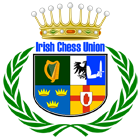JOHN GIBSON RIP
I first met John in the early 1960s when I was running schoolboy chess. I had met many schoolboy players over the years but he was among the relatively few who made a significant impression on me. It was not that he had a loud or overpowering personality - the opposite was rather the case - but in some indefinable way he stood from his peers. His chess potential was immediately apparent and that was demonstrated by a long and very successful career in the game.
His first big success was winning the Leinster School’s Senior Championship in 1965. He was equally successful when he moved to the senior ranks. He tied with Michael Littleton and Ken O’Riordan for the Leinster Senior title in 1968 but lost out in the double round playoff which followed. He made amends 10 years later when he took the title on his own in 1978.
He played in the Armstrong Cup, the highest chess level for teams, for over 40 years which was a great tribute to his chess ability. Indeed, he was rightly very proud of the fact that he had played more consecutive Armstrong Cup games than anybody else in Irish chess.
On the international front, he represented Ireland at all levels. At schoolboy level, he played in the Glorney Cup in 1965 and defeated a strong English opponent in our 3-3 all draw in that match. John played board 4 on the Irish team which included John Moles, the then Irish senior champion, and Paul Henry, a future champion. In 1968, John was part of the Irish student’s team which participated in the European Student’s Championship in Sweden. In later years he was a member of the Irish Seniors teams which played in Greece in 2019 and in the World Senior Team Championship in Prague in 2020.
John also had a fantastic collection of Irish chess literature. His material went back to the Ficheall magazines of the 1950s which represented the first important step in the transition of Irish chess from a purely domestic to a wider international dimension. Not too long ago I spoke to John about this material and he outlined to me its major components. It is truly a major treasure trove and must not be lost to Irish chess. No comparable archive exists to my knowledge.
John’s talents were not confined to chess. He was a very strong GO player (in a sense the Japanese equivalent of chess), and he participated successfully in GO tournaments abroad. I understand that he also trained the national GO team of at least one European country but I don’t have the relevant details. He was no mean tennis player and was a member and also President of his local tennis club for many years.
If chess is anything to go by, John had a very agile and open mind which continually sought out and absorbed new ideas. He was never afraid to depart from convention in chess. For example, he introduced many new ideas in the chess openings which often were a significant departure from established theory. He was never afraid of trying out new ways.
John had a very even and calm temperament. He was interesting, amusing and a good listener. He was universally popular and I never remember anybody saying a bad word about him (this does not always happen in our game!). He was a true gentleman who will be greatly missed.
Paul Cassidy
